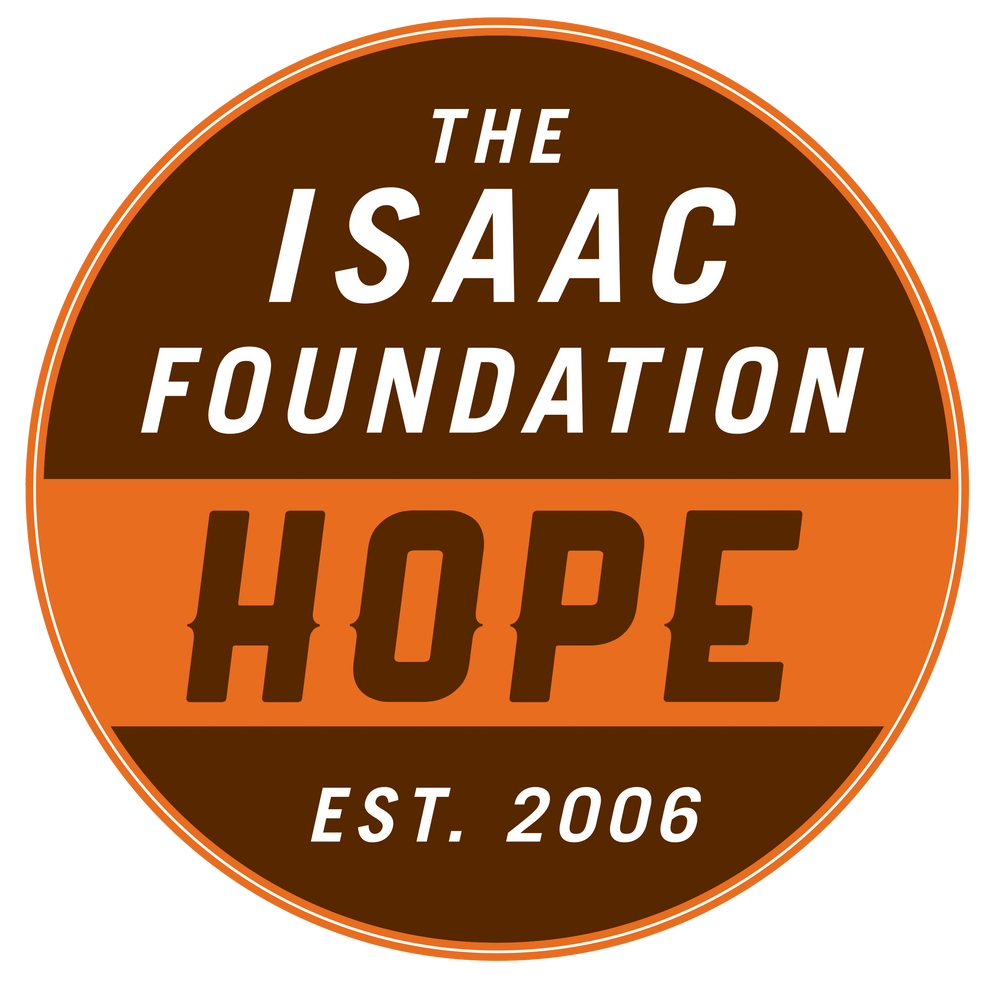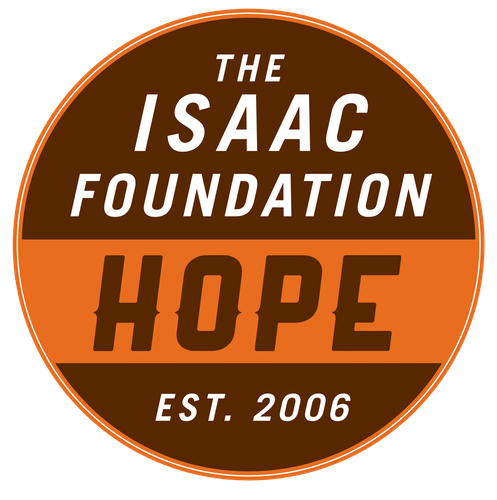



Published: 8/9/2012
 The following is part two of an interview with Andrew McFadyen, the father of eight-year-old Isaac who has the rare disease MPS VI. Wednesday’s story featured Isaac’s continued battle with the disease. Today’s story focuses on the McFadyen family’s advocacy for other children diagnosed with the disease. Friday’s story will announce their lofty new fundraising project.
The following is part two of an interview with Andrew McFadyen, the father of eight-year-old Isaac who has the rare disease MPS VI. Wednesday’s story featured Isaac’s continued battle with the disease. Today’s story focuses on the McFadyen family’s advocacy for other children diagnosed with the disease. Friday’s story will announce their lofty new fundraising project.
CAMPBELLFORD — First, back in 2006, it was for his own son Isaac. Then, last year, it was for another Ontario boy, two-year-old Jasper More. Now, it’s for a three-year-old Saskatchewan girl, Violet Revet.
All three young children (although Isaac is now eight) were diagnosed with the rare enzyme deficiency disease MPS VI (Maroteaux Lamy Syndrome). Two of them — Isaac and Jasper — were initially denied funding from their provincial government for the life-sustaining treatment that is available to help to help stave off the devastating symptoms of the disease. Violet, the most recent case, and her parents — Jennifer Yanke and Larry Revet — are still waiting to find out if she is approved or denied. She is only the ninth confirmed case of MPS VI in Canada. There are about 1,100 worldwide.
Andrew McFadyen has lobbied governments to ensure the children get the treatment they so desperately need.
Make no mistake, McFadyen pours his heart into every lobby effort, whether that’s for his own son or someone else’s child. He just wishes he didn’t have to. One child denied, one lobby effort is all one too many, as far as he’s concerned.
“This is now the third big advocacy push that we’ve had to look after and that’s a big problem to me,” he said in an interview earlier this week. “You would think after the first one that precedent has been set and people can go forward and change public policy for the better and ensure there’s an active review process for this type of treatment.”
When Isaac McFadyen was diagnosed with MPS VI, the news was devastating to his parents Andrew and Ellen. Symptoms of MPS VI include stiffening joints, stunted growth, heart and airway disease, spinal cord compression and a shortened life span.
Somehow, they had to find the strength to fight for funding from the government. Treatment, called Naglazyme, provided hope. It’s an Enzyme Replacement Therapy designed to provide patients with a synthetic version of the enzyme they are lacking.
Naglazyme is only available to Canadian patients through the federal government’s Special Access Program. The treatment comes with a hefty price tag of a million dollars a year, to be paid by provincial governments. From the McFadyens perspective as parents, though, you can’t put a price tag on your children.
“We know that this (treatment) is not a cure. I never tell anybody Isaac needs this, or Jasper needs this, or Violet needs this because it’s going to cure the disease,” McFadyen said. “We’ve always said it’s a lifeboat. It’s something that we can provide our children with to slow the progression of the disease and in some cases halt the progression of the disease until we can find that cure. It allows children to have a more normal and healthy life.
“From a parent’s perspective, that’s what you want for your children, to give them the best opportunity at a normal, healthy life,” he continued. “From a government’s perspective, I know they look at this for dollars and cents. They don’t look at the cost of the disease for them if it goes untreated. They don’t look at the cost of corneal transplants, double hip replacements, heart and airway disease…they don’t take that into account. They just look at that cost of one million a year and balk at it. It makes me angry, it makes me upset, and as a parent it really makes me question the importance of children with rare diseases across this country.”
Back when the McFadyens were lobbying for funding, they were strongly considering a move to England, where the treatment is approved. The country was willing to take the family and pay for Isaac’s treatments.
“It’s a priority there, because they have an Orphan Drug Plan, they have policies in place to ensure this is dealt with at an early stage and the best interest of the child is looked at,” McFadyen said. “Kids diagnosed with the disease start treatment within weeks.”
Funding for Isaac’s treatment was eventually approved by the Ontario government. The McFadyens received help from former Conservative MPP Elizabeth Witmer, who was the opposition’s health critic at the time. She invited the Campbellford family twice to the Ontario Legislature. In July 2006, the family received word from then-minister of health George Smitherman that the provincial government would fund Isaac’s ERT treatments.
There couldn’t have been better news at that time. Surely it inspired the McFadyens to help others. That same year they established The Isaac Foundation to help raise awareness of the MPS VI and also money to help fund innovative research projects.
Having The Isaac Foundation has also provided a connection to other families who have had their children diagnosed with MPS VI.
In August of 2011, Darren and Pam More of Palmerston, reached out to the McFadyens when their son Jasper was diagnosed with the disease. Six weeks after the diagnosis, the Mores learned that Jasper had been denied funding to receive the treatment.
That was a shock to McFadyen, that a second child had been denied in this province.
“We were really surprised and obviously really angry,” he said.
With the story spreading through news coverage and on Twitter, led by McFadyen’s efforts, within days the More family received word that the decision had been overturned and Jasper would get funding for the treatment after all.
“When we finally got approval and knew that (Jasper) was going to be covered, that should have been in it and the rest of the provinces should have been on board,” McFadyen said.
British Columbia and Quebec were already on board following Isaac’s case when children in those provinces were diagnosed.
Saskatchewan, which has the newest case, was a different story when Violet was diagnosed.
“To have another province go through this exact same thing, for us it’s astounding that we can still be in this position — that we can’t look after our children that are suffering from these rare diseases,” McFadyen said. “It really goes to show that a lack of an Orphan Drug Plan here in Canada does impact our kids in a negative way.”
McFadyen is also concerned that it took 18 months for Violet to receive the proper diagnosis that she was suffering from MPS VI. Worse, he says, is that Violet has since been waiting an additional seven months waiting for the approval of treatment.
“The timeline between symptoms appearing, diagnosis and then beginning treatment is really detrimental to Violet and her health and it’s actually embarrassing for our health care system to have those statistics out there because we aren’t looking after the needs of these kids suffering and I really feel for the family and I really feel for Violet,” McFadyen said.
McFadyen noted the Saskatchewan government says they are looking into the safety of the treatment. He said that shouldn’t be a concern since it’s approved in the United States and England and is already being used in three other Canadian provinces through the Special Access Program.
“It’s just not approved here in Canada because of the limited number of children that are affected by this disease,” he said. “What they’re really doing is looking at the cost on a year-by-year basis. I understand that it’s not easy to commit a million dollars in funding for one child per year for a government, but it seems to be that we have a great health care system until you get really sick or in need of something that’s really expensive. Then there’s questions on whether they’re going to treat you or help you.”
Due to how rare these cases of MPS VI are, providing funding, McFadyen suggests, isn’t going to bankrupt a government.
In addition to the advocacy work McFadyen has been doing behind the scenes, he said a social media campaign evolved for this case. The Twitter and Facebook pages for Saskatchewan Premier Brad Wall were flooded with public comments calling to approve the funding for Violet.
At this point, McFadyen has the experience of knowing what governments need to ensure these files move quickly. He can also provide any safety data they require and the benchmark information they need.
“My issue was the timeline involved here,” he said. “It doesn’t seem to be the highest priority. When I take to Twitter to express that fact or when I put my press release out, sometimes it’s surprising how many people pick that up and are interested and engaged and start that snowball effect of tweeting the premier and hitting his Facebook page.
“We’re getting responses from the premier and responses from the people involved and they are signaling that they’re listening to us and they hear us and work is moving forward in a timely fashion. Now it’s my role to ensure that timely fashion is within the timelines that Violet needs and that we as Canadians expect the people making our decisions on our behalf.”
McFadyen said a decision could be announced any time now.
While Isaac has been on the treatment for several years now and benefitted from it, even little Jasper More has made great strides a year later.
“Jasper is doing so well,” McFadyen said. “He’s had no ill effects from the treatment that he’s receiving, the disease seems to have slowed or even halted in him, and that’s really positive because we know if children get on this treatment really, really early, the outlook for them is spectacular.
“There’s all the hope in the world that he won’t have to suffer any of the symptoms that this disease can lead to. The family is doing okay. I think they’ve come around to their new circumstances in life and are enjoying every moment that they have together. We see them often. They come to all of our Isaac Foundation events, and they’ve joined our board and the charity and they’re looking after a lot of the fundraising with us and they’re really engaged to find a cure. To see Jasper running around with the big smile he has on his face is really rewarding.”
Now, he wishes the same for Violet.
“Ideally, we win this one last battle and public policy can be set for the rest of the country and maybe it will spark Canada to come up with an Orphan Drug Plan so this never has to happen again for any child affected with any type of rare disease,” McFadyen said.
UPDATE: Violet’s family has received word that the funding has been approved and she will get the treatment she needs.
twitter.com/NT_jgard